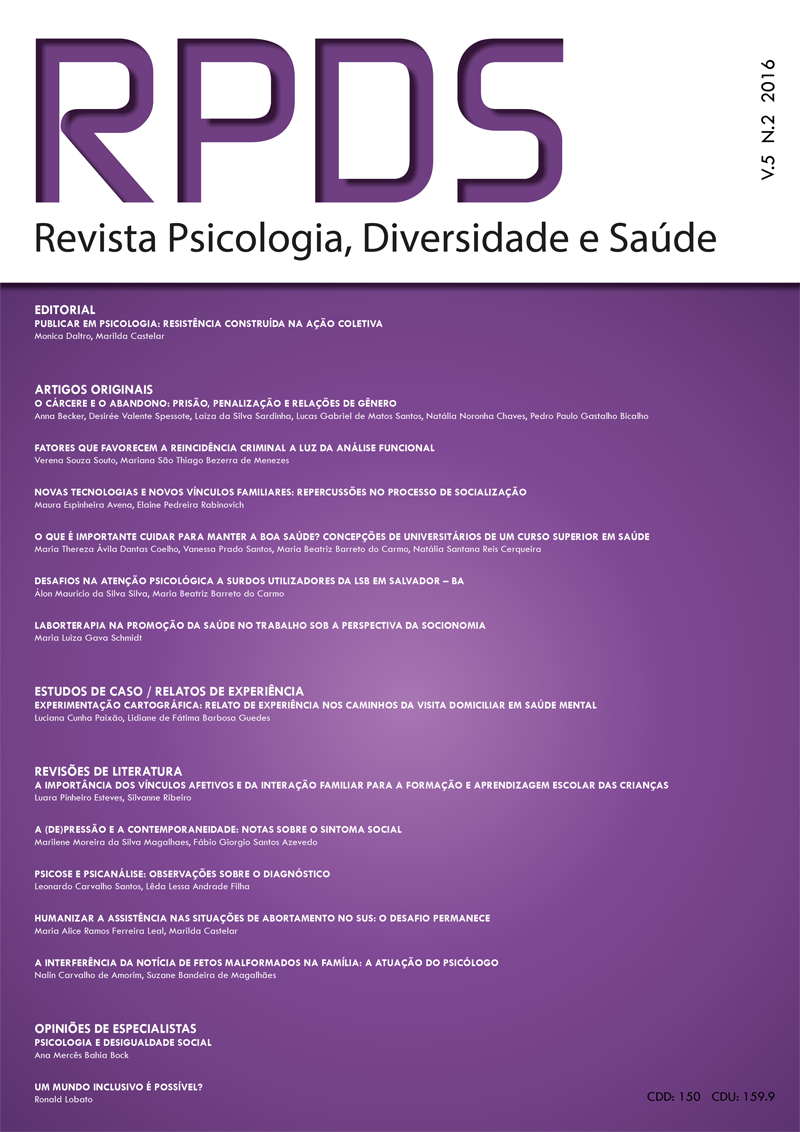INTERFERENCE OF FETAL MALFORMED NEWS IN THE FAMILY: THE ROLE OF THE PSYCHOLOGIST
DOI:
https://doi.org/10.17267/2317-3394rpds.v5i2.1066Keywords:
Birth defects, Gestation, LossAbstract
Introduction This study aimed to understand what the scientific literature has addressed the impact of Fetal Malformation news for the family and the psychologist's intervention possibilities in the family organization. Method To obtain the main journals, there was bibliografic research with PePSIC and Scielo, using the keywords: "malformation and fetal", "psychology and pregnancy", "baby and real", "loss and pregnancy", "baby and imaginary", “psychology and pregnancy”. It was also used some chapters of book authors from the area and a dissertation. Results The study was grouped into three categories. The first category covers the loss of the ideal: a fetal malformation. The second category analyzes the impact of fetal malformation news for parents and family. The third category is about the role of the psychologist. Conclusion The findings of the research show that fetal malformation news destabilizes not only the mother, as the whole family, however, how this will be passed on to parents influence the emotional impact. The study shows also the importance of the psychologist in pregnancy area to intervene at this point of imaginary and/or real loss.Downloads
Download data is not yet available.
Downloads
Published
12/19/2016
Issue
Section
Review Studies
How to Cite
Amorim, N. C. de, & Bandeira de Magalhães, S. (2016). INTERFERENCE OF FETAL MALFORMED NEWS IN THE FAMILY: THE ROLE OF THE PSYCHOLOGIST. Revista Psicologia, Diversidade E Saúde, 5(2). https://doi.org/10.17267/2317-3394rpds.v5i2.1066



